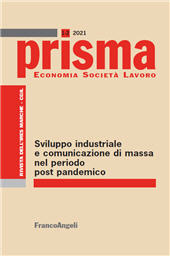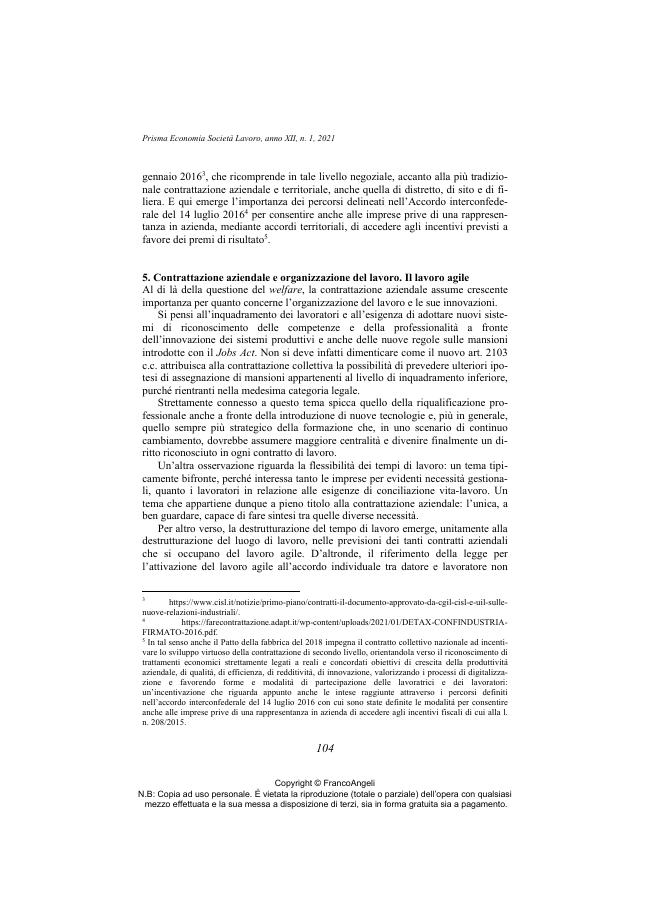Note sparse su alcuni contenuti della contrattazione collettiva di secondo livello
99-109 p.
L'Autore sintetizza i temi salienti della contrattazione di secondo livello in Italia, partendo dal welfare aziendale, campo su cui il sindacato può esercitare la propria capacità di rappresentanza effettiva dei bisogni reali dei lavoratori, oggi messa a rischio dalle profonde trasformazioni del sistema produttivo. In materia retributiva, l'Autore osserva come alcune prestazioni di welfare aziendale siano in grado di garantire efficacemente quell'esistenza libera e dignitosa di cui all'art. 36 Cost., anche se sotto l'occhio vigile della contrattazione aziendale, necessario per evitare che il welfare aziendale si realizzi a detrimento della componente monetaria (con possibili effetti negativi anche sul piano previdenziale).
La crescente importanza della contrattazione aziendale emerge in materia di organizzazione del lavoro: dalle nuove regole sulle mansioni, dopo il Jobs Act, alla destrutturazione del tempo e del luogo di lavoro, in particolare, nel lavoro agile, il ruolo della contrattazione aziendale appare indispensabile a tutela dello smart worker e della sua salute e sicurezza. Infine, si auspica una contrattazione collettiva aziendale che promuova la tutela dell'ambiente (premi di risultato collegati ad obiettivi di risparmio energetico, mobilità sostenibile, ecc.) e la partecipazione dei lavoratori. [Testo dell'editore].
The Author summarizes the main themes of secondlevel collective bargaining in Italy, starting with corporate welfare, a field on which the trade union can exercise its capacity to effectively represent the real needs of workers, put at risk, today, by the profound transformations of the production system. In terms of wage, the Author observes how some corporate welfare services are able to effectively guarantee the free and dignified existence pursuant to art. 36 of the Constitution, even if through the watchful eye of company negotiation, necessary to prevent company welfare from being realized to the detriment of the monetary component (with possible negative effects also on the pension plan).
The growing importance of second level collective bargaining emerges in the field of work organization: from the new rules on work duties, after the Jobs Act, to the destructuring of the time and place of work, in particular, in smart working, the role of second level collective bargaining appears essential for the protection of the smart worker and their health and safety. Finally, collective company negotiation is hoped to promote environmental protection (performance bonuses linked to energy saving objectives, sustainable mobility, etc.) and workers participation. [Publisher's text].
Ist Teil von
Prisma : economia, società, lavoro : 1/2, 2021-
Artikel aus derselben Ausgabe (einzeln erhältlich)
-
Informationen
ISSN: 2036-5063
KEYWORDS
- contrattazione, welfare aziendale, retribuzione, lavoro agile
- collective bargaining, corporate welfare, wage, smart working



